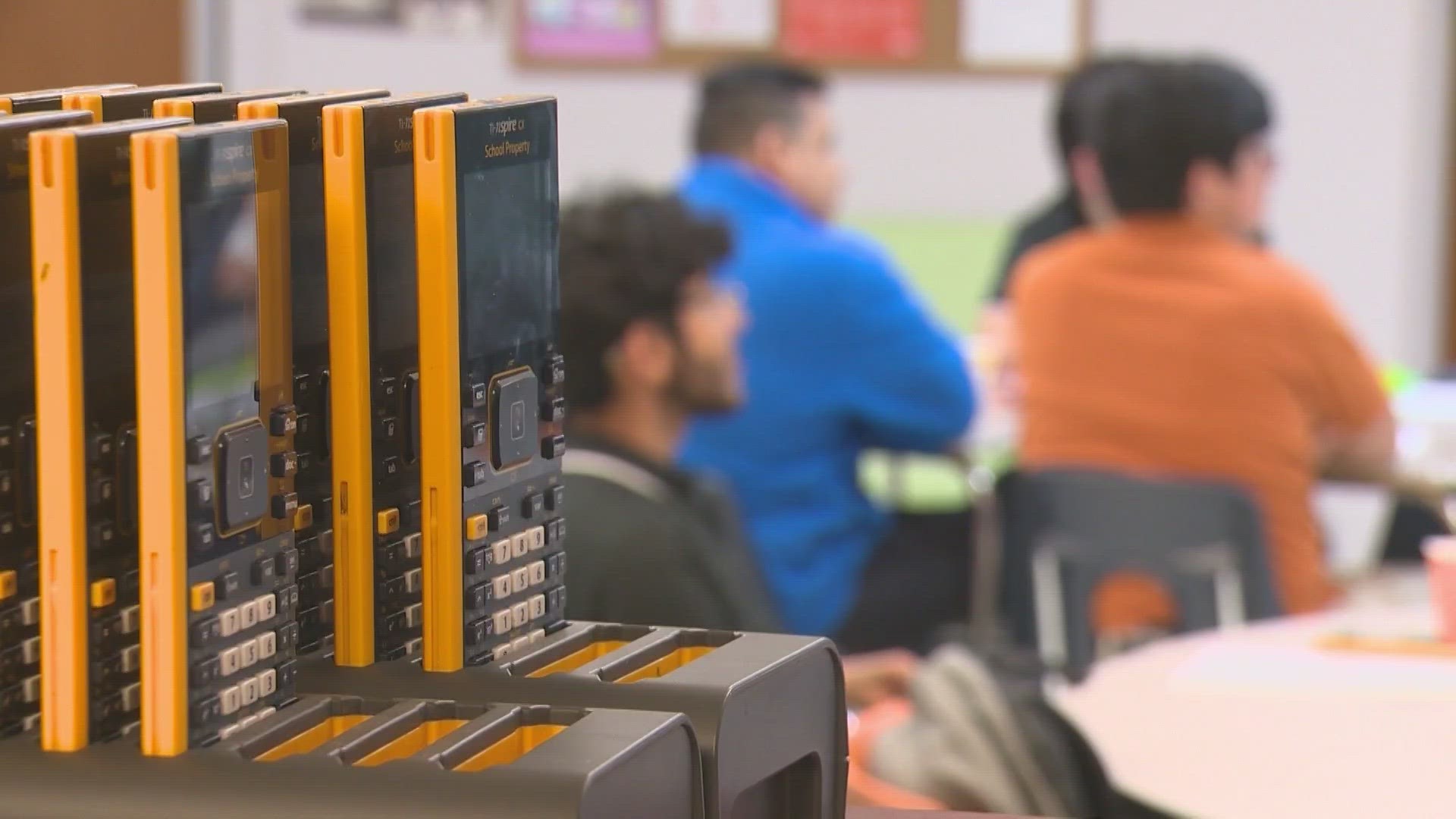SAN ANTONIO — A new way of getting kids invested in math grew out of a classroom in the southside of San Antonio and has multiplied and is spreading across the country.
Standing in front of a small group of students at IDEA South Flores Monday night, Dashiell “Dash” Young-Saver explains the next week’s assignment.
"The question for that is “Is climate change real based on the data that we have?" he said.
Young-Saver is not teaching a science class or leading debate club. He is the founder of the non-profit Skew the Script.
"We provide free, relevant math lessons to teachers and students," Young-Saver said.
He said the name was inspired by the students he taught at Burbank High School on the South side of San Antonio. The curriculum it developed is being used in 20,000 classrooms by 400,000 students.
“I told my students the fact of the matter, which was there was a script written about them. The script was that because they're low-income students, they would not do as well on the AP statistics exam,” Young-Saver said. “And I told them is we're going to skew that script the other way."
He says in that first year, more students passed the AP Stats exam than the previous sixteen years combined.
"I found my students more able to make sense of the world in a critical and data informed way,” Young-Saver said. “That was part of the most satisfying part of it."
Young-Saver says he built his lessons around real-world topics the students brought to him.
“You're going to get examples that have effects medicine, real people's lives, jobs, politics,” said student Charles Tejeda. “All kinds of real-world applications that are very apparent in today's society.”
The curriculum does touch on several divisive political issues, though in a non-partisan way. Young-Saver says the controversial nature of the lessons is not lost on them. In fact, the Skew the Script website provides students with a letter to parents explaining how the lesson plan was developed without bias.
"When you look at the lessons, those are lessons that have been vetted by committee politically diverse math teachers, some on the right, some the left, some in the center," Young-Saver said.

